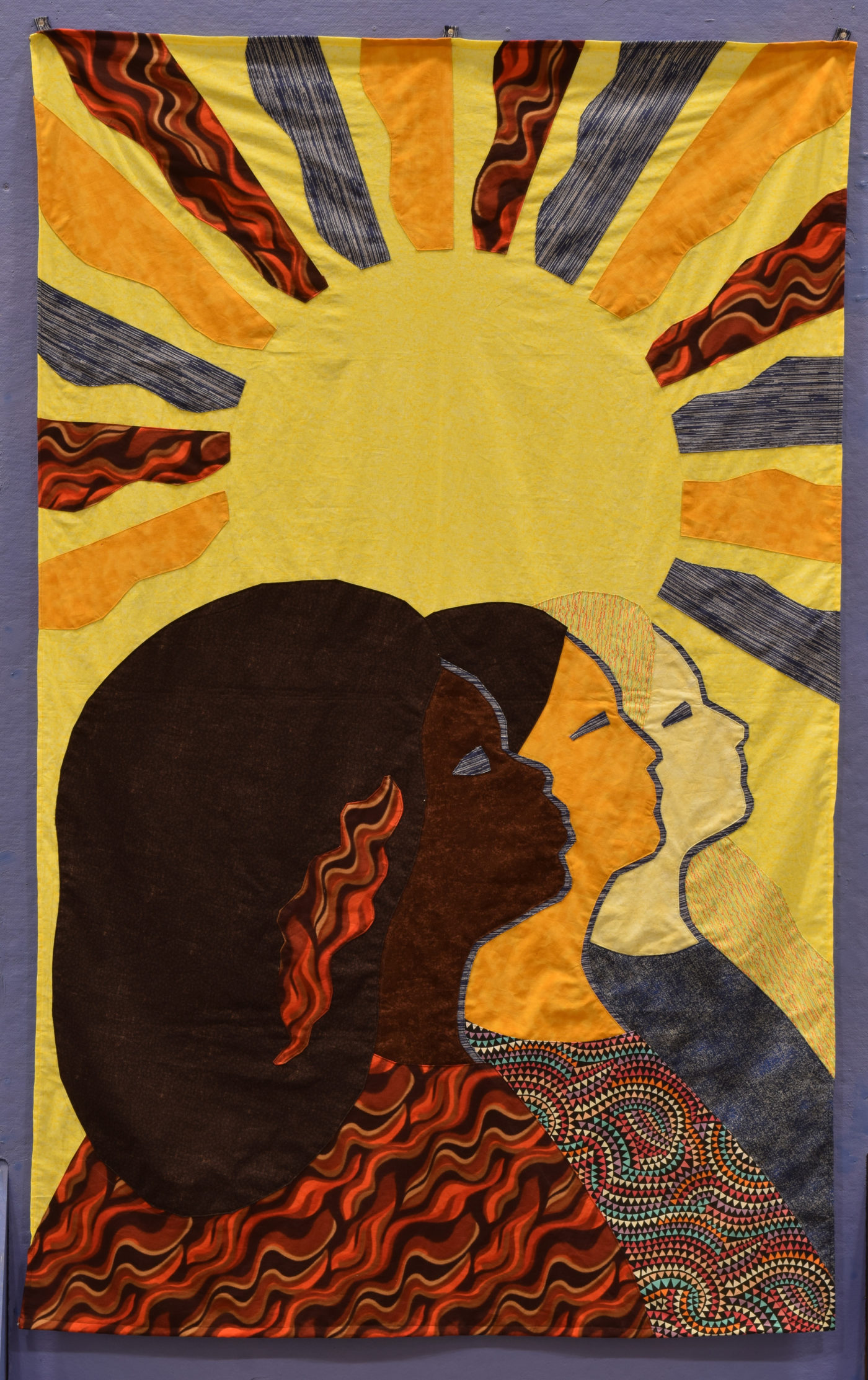(born in 1983, lived in Kyiv, currently in Ann Arbor in the United States) studied at the Ivan Trush Lviv State Institute of Decorative and Applied Art and the National Academy of Fine Arts and Architecture in Kyiv, and is currently studying at the Stamps School of Art and Design at the University of Michigan. She works as an artist, curator, graphic designer, and author of essays on art. She co-founded the Centre for Research on Visual Culture in Kyiv and from the beginning of her public activity has been involved in the feminist movement, supporting women and minorities in art in Ukraine. She works with the media of drawing, painting, installation, text, and often works with textiles and public spaces. With the broad public in mind, Briukhovetska often uses popular and traditional materials (such as fabrics), techniques (e.g. watercolour), and means of expression (realism). Through her practice, she explores topics related to the gender division of labour and social roles, motherhood, trauma and memory, especially in the post-Soviet context, as well as racial discrimination in relation to US society and history.
My Grandmother’s Portrait, 2018, textile collage, courtesy of the artist
Solidarity of Women of the World, textile collage, 2021, courtesy of the artist
Oksana Briukhovetska uses traditional, feminized techniques of handicrafts in fabrics to commemorate women’s stories. Her aim is to create an alternative to the patriarchal patterns of representing the past. In her grandmother’s portrait, she refers to the conventions of folk art. The depiction of the ancestor is accompanied by attributes of rural origin and work. On the other hand, the textile collage Solidarity of Women of the World remakes a Soviet poster designed for the celebration of International Women’s Day, which calls for the unity of women of different races. The artist relates this universalistic Soviet theme to the African-American women’s movements, which is signalled by the use of a patchwork collage technique of working with colourful fabrics. This craft was once cultivated by female slaves in the United States, and in the hands of conscious African-American artisans and artists, it has become a tool of expression in the fight against racial discrimination and the recovery of their own roots. Briukhovetska’s works reconnect herstories divided by Cold War borders as a basis for a contemporary women’s international. Photo: Solidarity of Women of the World, 2021, courtesy of the artist


Venue
BWA Zielona Góra, Al. Niepodległości 19












